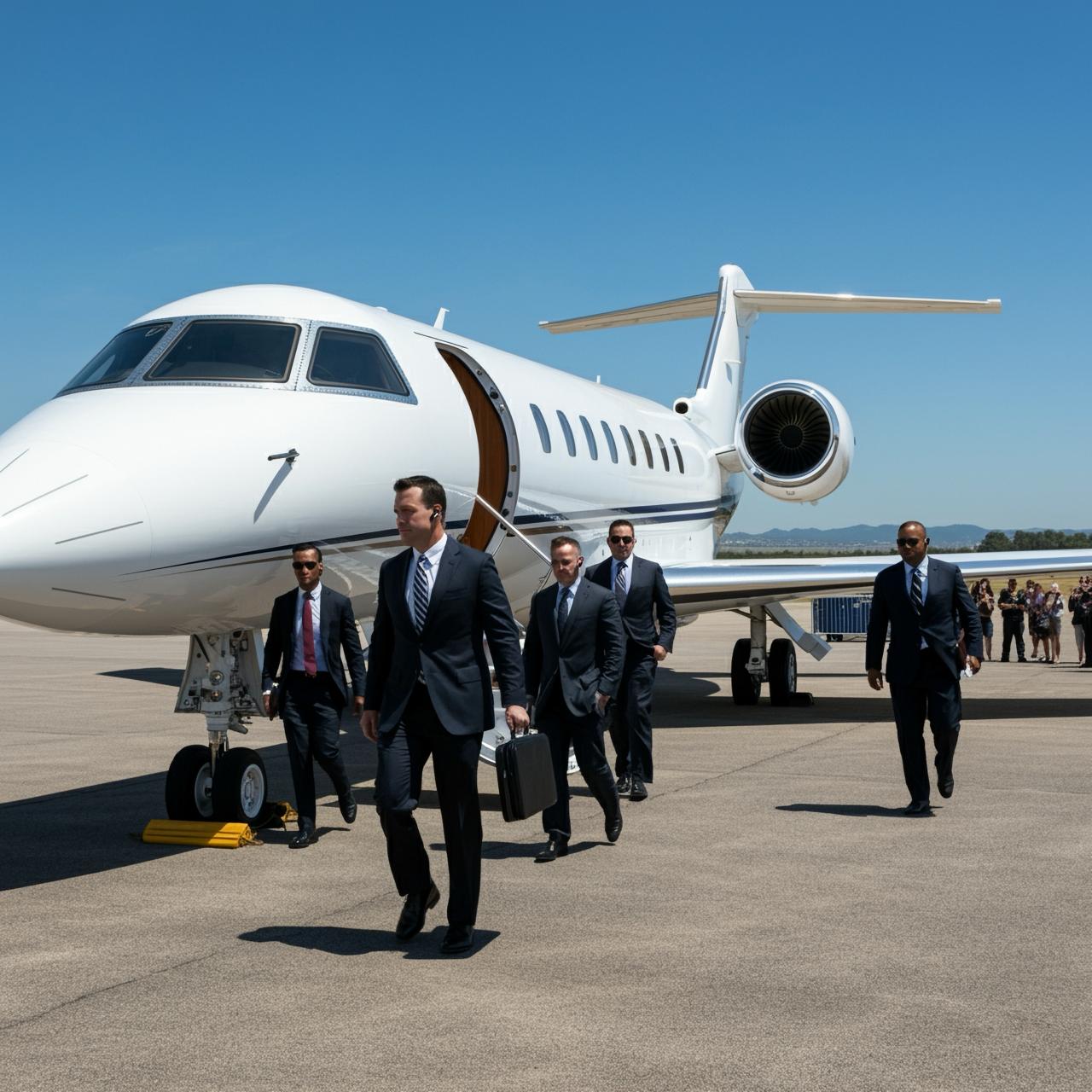For high-profile individuals, travel presents unique challenges and risks, ranging from public exposure to security threats. Whether it’s a business trip, a vacation, or an international event, careful planning and proactive measures are essential to ensure safety and peace of mind.
Here are key travel safety tips tailored specifically for high-profile clients to help them stay secure and comfortable during their journeys.
1. Choose Secure Accommodations
The choice of accommodations plays a significant role in ensuring safety while traveling.
Best Practices:
• Opt for hotels with robust security measures, such as 24/7 surveillance, controlled access, and on-site security personnel.
• Request rooms on higher floors, away from street access but not so high as to complicate emergency evacuation.
• Use aliases or request privacy options to avoid publicizing your stay.
Pro Tip: Have your security team conduct a reconnaissance of the property before your arrival.
2. Maintain a Low Profile
Drawing unnecessary attention can increase risks, especially in unfamiliar or high-risk areas.
Best Practices:
• Avoid posting real-time travel details or locations on social media.
• Dress to blend in with the local environment rather than standing out.
• Use discreet transportation options and avoid publicizing your travel itinerary.
Pro Tip: Work with your security team to establish a travel protocol that prioritizes discretion.
3. Secure Your Transportation
Transportation is often the most vulnerable aspect of travel for high-profile clients.
Best Practices:
• Use vetted drivers with experience in security-conscious transport.
• Opt for vehicles equipped with safety features such as bulletproofing, GPS tracking, and emergency communication systems.
• Plan routes in advance and include alternate options in case of roadblocks or traffic issues.
Pro Tip: Employ a professional executive protection (EP) team to manage secure transport and route planning.
4. Be Aware of Local Risks
Understanding the security environment of your destination is critical to staying safe.
Best Practices:
• Research crime rates, political stability, and health risks in the area.
• Identify safe zones such as hospitals, police stations, and embassies near your destination.
• Stay informed about local customs and laws to avoid unintentional violations.
Pro Tip: Use a travel risk assessment provided by your security team to prepare for potential threats.
5. Use Secure Communication
Confidentiality is key for high-profile clients, especially when discussing sensitive business or personal matters.
Best Practices:
• Use encrypted communication tools to protect calls, messages, and data.
• Avoid public Wi-Fi networks unless connected through a Virtual Private Network (VPN).
• Keep sensitive documents on secure, password-protected devices.
Pro Tip: Equip your devices with cybersecurity tools before traveling.
6. Travel with a Trusted Team
High-profile clients often rely on trusted security teams to manage their safety during travel.
Best Practices:
• Ensure your EP team has local knowledge and connections in your destination.
• Discuss your itinerary and personal preferences with the team to tailor the protection plan.
• Maintain regular communication with your security personnel throughout the trip.
Pro Tip: Apps like AdvanceWork help EP teams plan and execute missions seamlessly, ensuring your safety.
7. Prepare for Emergencies
Even the best plans can face unexpected challenges. Having a clear emergency protocol is essential.
Best Practices:
• Keep a list of emergency contacts, including your security team, local law enforcement, and nearest embassy.
• Familiarize yourself with evacuation procedures at your accommodation.
• Carry a personal medical kit with basic supplies for emergencies.
Pro Tip: Ensure your EP team has contingency plans for medical emergencies, evacuations, and other unexpected incidents.
8. Monitor Social Media Exposure
Social media can inadvertently expose your location and activities to unwanted attention.
Best Practices:
• Refrain from tagging your location or sharing travel details in real-time.
• Review privacy settings on your accounts to limit visibility to trusted contacts.
• Monitor mentions and tags from others that may reveal your presence.
Pro Tip: Have a team member monitor social media for potential threats or leaks.
9. Stay Healthy
Maintaining physical and mental well-being during travel is crucial for high-profile clients.
Best Practices:
• Stay hydrated and avoid overly strenuous schedules.
• Adhere to dietary restrictions and ensure access to clean, safe food and water.
• Schedule downtime to reduce stress and fatigue.
Pro Tip: Your EP team can coordinate with local resources to ensure your health needs are met.
10. Debrief After the Trip
Post-travel evaluations are an excellent way to improve safety for future trips.
Best Practices:
• Discuss what worked well and any areas for improvement with your security team.
• Update travel protocols based on lessons learned.
• Review any incidents or near-misses to refine planning strategies.
Pro Tip: Use tools like AdvanceWork to document and analyze post-trip insights for future reference.
Conclusion
Traveling as a high-profile individual comes with unique challenges, but proactive measures and professional support can mitigate risks effectively. By choosing secure accommodations, maintaining a low profile, and working with an experienced EP team, high-profile clients can focus on their priorities while staying safe.
Ready to enhance your travel safety? Learn how AdvanceWork simplifies executive protection planning at advancework.app.




